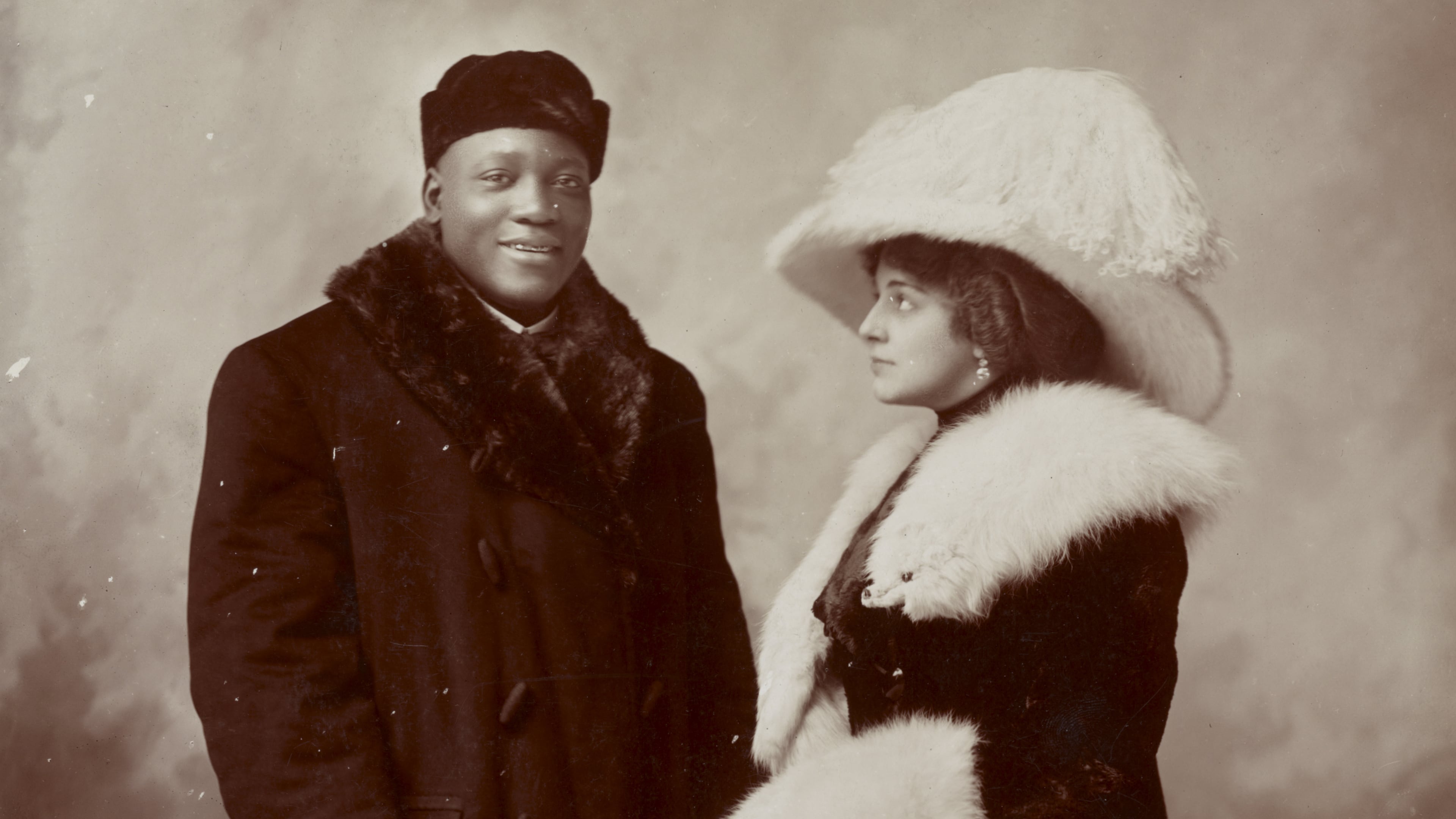More than a century after his conviction, boxing great Jack Johnson, the first black man to become heavyweight champion of the world, was granted a posthumous pardon by President Donald Trump.
Flanked by former heavyweight champion Lennox Lewis and fictional heavyweight champion Sylvester Stallone in the Oval Office, Trump said of the pardon: “It’s about time.”
»RELATED: Trump pardons Jack Johnson
Although historians, boxing aficionados and politicians – including Sen. John McCain, R-Ariz. and former Senate Majority Leader Harry Reid, D-Nev. – have been pushing for Johnson’s case for years, it almost seems fitting that Trump did it.
Johnson, like Trump, enjoyed the limelight. But who was Johnson?
Here are five things to know:
1. Why did he need to be pardoned? He violated the Mann Act. By the time Johnson became heavyweight champion, he had a penchant for flaunting his wealth, power and masculinity. That naturally resulted in him dating and marrying white women. The Mann Act was signed into law in 1910 to address prostitution, immorality, and human trafficking, but to also prosecute unlawful premarital, extramarital, and interracial relationships. Which is where Johnson comes in. Twice in 1912, Johnson was arrested under the Mann Act, for "transporting (at least two) women across state lines for immoral purposes." An all-white jury convicted Johnson, but he skipped bail and lived in exile. He finally surrendered in 1920 and spent 10 months in prison.

2. Why was he famous? On December 26, 1908, Johnson made history when he beat Canadian Tommy Burns in Sydney, Australia for the heavyweight title. All existing footage of the Burns fight stops just as he hits the canvas. Before that, Johnson had been the World Colored Heavyweight champion. He was essentially competed in a black boxing circuit and was denied a chance to fight for the heavyweight championship. Johnson lost the title in 1915 to Jess Willard. He finished boxing with a 73-13 record, including 40 knockouts.
3. Who was the "Great White Hope?" As Johnson dominated professional boxing, humiliating a string of white opponents, calls came out for a "Great White Hope," to defeat him and restore the natural order. While the name was a concept, the "Great White Hope," finally arrived in the massive form of James J. Jeffries, a retired former heavyweight champion famous for breaking the ribs of his opponents. Jeffries was lured out of retirement in 1910 to fight Johnson, telling reporters: "I am going into this fight for the sole purpose of proving that a white man is better than a negro," Jeffries said. Johnson destroyed Jeffries, knocking him out and through the ropes in the 15th round. Johnson said he knew Jeffries didn't have a chance as early as the 4th round, but toyed with him. After the fight, race riots broke out across the United States between jubilant African-Americans and upset whites. At least 20 people were killed.
4. Where did Johnson come from? Johnson was born March 31, 1878 in Galveston, Texas. Both of his parents were former slaves. Frail as a child, he spent only five years in school before quitting to work. After a series of menial jobs, he saved up enough money to buy a pair of boxing gloves. His first professional fight was in 1898.

5. What became of him? After losing his title in 1915 and going to jail in 1920, Johnson never fought again for the championship. But still made his way into the ring as a professional up until 1938 when he was 60. In 1937, Joe Louis knocked out Jimmy Braddock to become the first black Heavyweight Champion of the World since Jack Johnson. Louis was marketed as the anti-Johnson and his camp even refused an offer from Johnson to train the young champion. Johnson's last appearance in the ring came in 1945 in an exhibition to raise money for War Bonds. On June 10, 1946, while traveling through Franklinton, N.C., the former heavyweight champion was refused service at an all-white diner. Angry, he raced off in his car and crashed on U.S. Highway 1. He was taken to the nearest black hospital, Saint Agnes in Raleigh 27 miles away, where he died. He was 68. Johnson was inducted into the Boxing Hall of Fame in 1954. In 1969, a play, "The Great White Hope," loosely based on Johnson's relationship with his first wife, Etta Terry Duryea, won the Tony Award for Best Play and the Pulitzer Prize for Drama.

